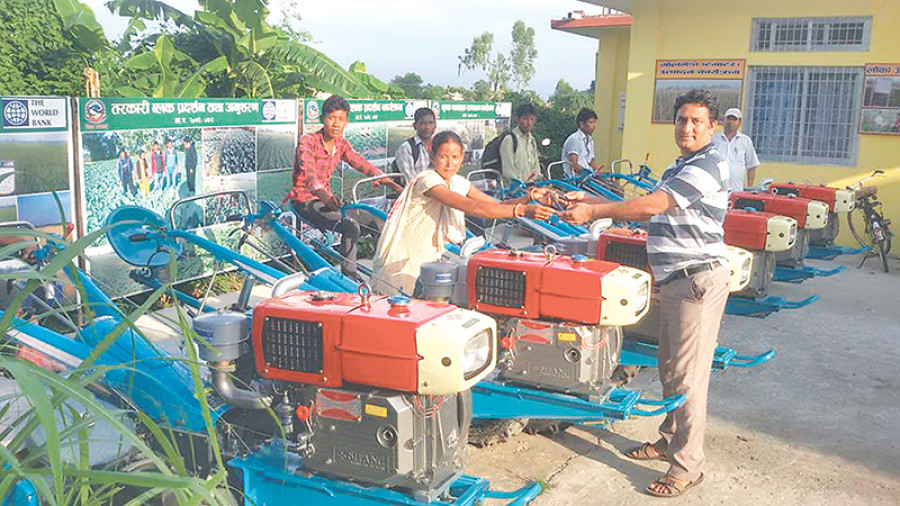Money
Farmers in Tikapur see increased productivity
Farmers in Tikapur have been recording increased agricultural productivity after adopting modern farming techniques and irrigation facility, thanks to the Rani-Jamara-Kulariya Irrigation Project.
Ganesh Chaudhary
Farmers in Tikapur have been recording increased agricultural productivity after adopting modern farming techniques and irrigation facility, thanks to the Rani-Jamara-Kulariya Irrigation Project.
Increased use of improved seeds varieties, mechanisation, irrigation facility and pest management have helped increased productivity. The income of farmers has also increased.
Farmers have also been provided assistance from agriculture technicians to produce foods using proper techniques.
According to statistics released by the agriculture office of the Rani-Jamara-Kulariya Irrigation Project, the land covered by the project has been producing 3.8 tonnes of paddy per hectare from the national average of 3.5 tonnes per hectare. In contrast, paddy productivity elsewhere in the district without irrigation facility stands at 2.5 tonnes per hectare.
Similarly, wheat productivity in areas covered by the project has been recorded at 3.7 tonnes per hectare, while in other areas, productivity is 2.9 tonnes per hectare. Mustard productivity has been recorded at 1.1 tonne per hectare.
“Agriculture productivity has increased due to farmers using improved varieties of seeds and the support from agro technician,” said Kul Prasad Tiwari, chief of the project. “Before the irrigation project, investment in farm sector was almost zero,” he said. “Commercial farming has increased nowadays.”
“The project has also provided agriculture training and machines. It has also constructed a seed storage plant,” said Jit Bahadur Chaudhary, a local farmer of Bangaun in Tikapur Municipality.
Farmers of Kailali are increasing the use of modern agriculture machines. The farmers are using more power tillers, tractors and among others machines. The Rani-Jamara-Kulariya Irrigation Project has distributed 132 power tillers at subsidised cost to farmers to encourage them to adopt farm mechanisation. According to the project, they have provided power tillers at 50 percent discount rate.
To make farmers self-sufficient on seeds, the project has supported five cooperatives to set up seed storage plant and grading machine. These cooperatives are involved in production and distribution of improved varieties of seeds.
The project said that in the first phase, 957 tonnes of seeds were produced. “This has ended the trend of importing improved seeds from India,” said Jokhan Chaudhary, a farmer of Baghmara in Tikapur Municipality.




 9.83°C Kathmandu
9.83°C Kathmandu.jpg)















